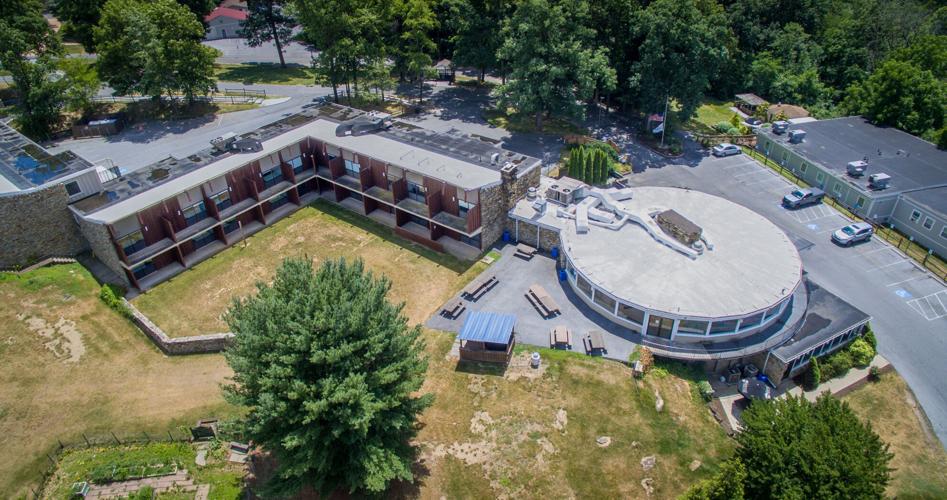A Florida judge has given a receiver overseeing finances of the shuttered Retreat at Lancaster and Akron access to the financial records of the company’s Florida operation.
At a hearing Monday, Florida Circuit Court Judge G. Joseph Curley held off appointing James W. Young, the receiver in Pennsylvania, to oversee the closed Florida operation but said Young should be allowed to view the financial records.
Receivership is being sought by Denver, Colorado-based Lapis Advisers, which claims it is owed as much as $17 million by Retreat’s owners. Lapis successfully argued for Young’s appointment by a Lancaster County judge last month, but only to manage the Retreat operations in the county.
Receivership is a court-appointed process that allows a neutral third party to manage a company's assets and operations while litigation is pending.
The Pennsylvania and Florida operations were owned by separate companies headed by Peter Schorr and business partner David Silberstein. Schorr, who founded the Retreat, died by suicide June 21, followed days later by the suicide of Scott Korogodsky, the company’s chief administrative officer.
READ: Employees at Ephrata behavioral health facility go unpaid in the wake of CEO's death
READ: 2 behavioral health company execs died by suicide; questions remain for facility in Ephrata
Their deaths led to the abrupt shuttering of Retreat’s addiction and mental health treatment centers in Pennsylvania, Florida and Connecticut. Nearly 650 employees, about 300 at the Lancaster County facilities, were out of work as a result.
The complex web of companies that made up Retreat are faced with multiple lawsuits from creditors seeking payment for loan defaults. Adding to the complexity is the fact that Retreat leased its facilities from a company owned separately by Silberstein, and Silberstein maintains he’s due millions in past due rent.
Lapis and other creditors, however, questioned payments from Retreat’s Pennsylvania business to its Florida affiliate and where that money went instead of the banks owed millions on loans to the behavioral health company and the Silberstein companies that owned the real estate.
In addition to giving the Pennsylvania receiver access to the Florida records, the judge gave attorneys 20 days to obtain mediation and propose what to do to maintain the value of Retreat’s Palm Beach County facility.
“It's critical that someone address the accounts receivable as soon as possible,” Curley said at the end of the day-long hearing. “The longer they go without being collected, the less likely they are to be collected.”
READ: Receiver questions payment to some Retreat employees tied to late CEO
READ: Company owed millions by Retreat entities seeks receiver in Florida
Moises Kaba, attorney for Silberstein, argued against appointing a receiver. Silberstein testified that he was in negotiations with potential buyers of the operation, which he said was worth $65 million, before its Fulton Bank accounts were frozen in a dispute with creditors.
A 2019 appraisal put the property value at $21 million, according to testimony. The Florida operation may be owed about $10 million from insurers and other payers.
Kaba argued that receivership is unnecessary and if Silberstein was allowed to he would be able to collect insurance and government payments owed to Retreat, which would be seed money to resurrect the operation.
Adrienne Walker, attorney for Lapis, raised questions about money transfers to Silberstein’s company from Fulton Bank accounts that had been frozen. Silberstein maintained he had a right to the money.
Young testified that there was about $800,000 in receivables in a safe when he arrived at Retreat’s offices in Ephrata. He said Silberstein had directed controller Jodie Bruce and asked her to send that money to his home office in Brooklyn. Young stopped the transfer pending the winding down of the company and the resolution of numerous lawsuits filed by creditors.
Young testified that while payments from insurance were being sent to the Pennsylvania company’s accounts, he did not see any receivables coming into Florida company’s accounts.
Walker asked the judge to order checks paid to the various Retreat entities be kept in escrow until receivership and other legal matters are decided. Curley agreed.
On Friday, a Lancaster County judge approved an order allowing Young to access funds held by Fulton Bank to pay employees of the Pennsylvania facilities, who did not receive their final paycheck before the company closed.
Young told the court he was holding back some money owed to employees because he said it was unclear if they actually completed work for Retreat. He noted that these employees, whom he declined to name, all had close ties to Schorr.







![Former Retreat workers lament loss of income and 'land of second chances' [video]](https://bloximages.newyork1.vip.townnews.com/lancasteronline.com/content/tncms/assets/v3/editorial/6/de/6dea39f6-3885-11ef-a693-4378eb8fde72/668418bfbb63e.image.jpg?resize=150%2C112)
![Full coverage of the closure of Retreat Behavioral Health in Ephrata [roundup]](https://bloximages.newyork1.vip.townnews.com/lancasteronline.com/content/tncms/assets/v3/editorial/1/36/13666826-38a1-11ef-9bdc-079f7a7daff4/668447831a930.preview.jpg?resize=150%2C97)